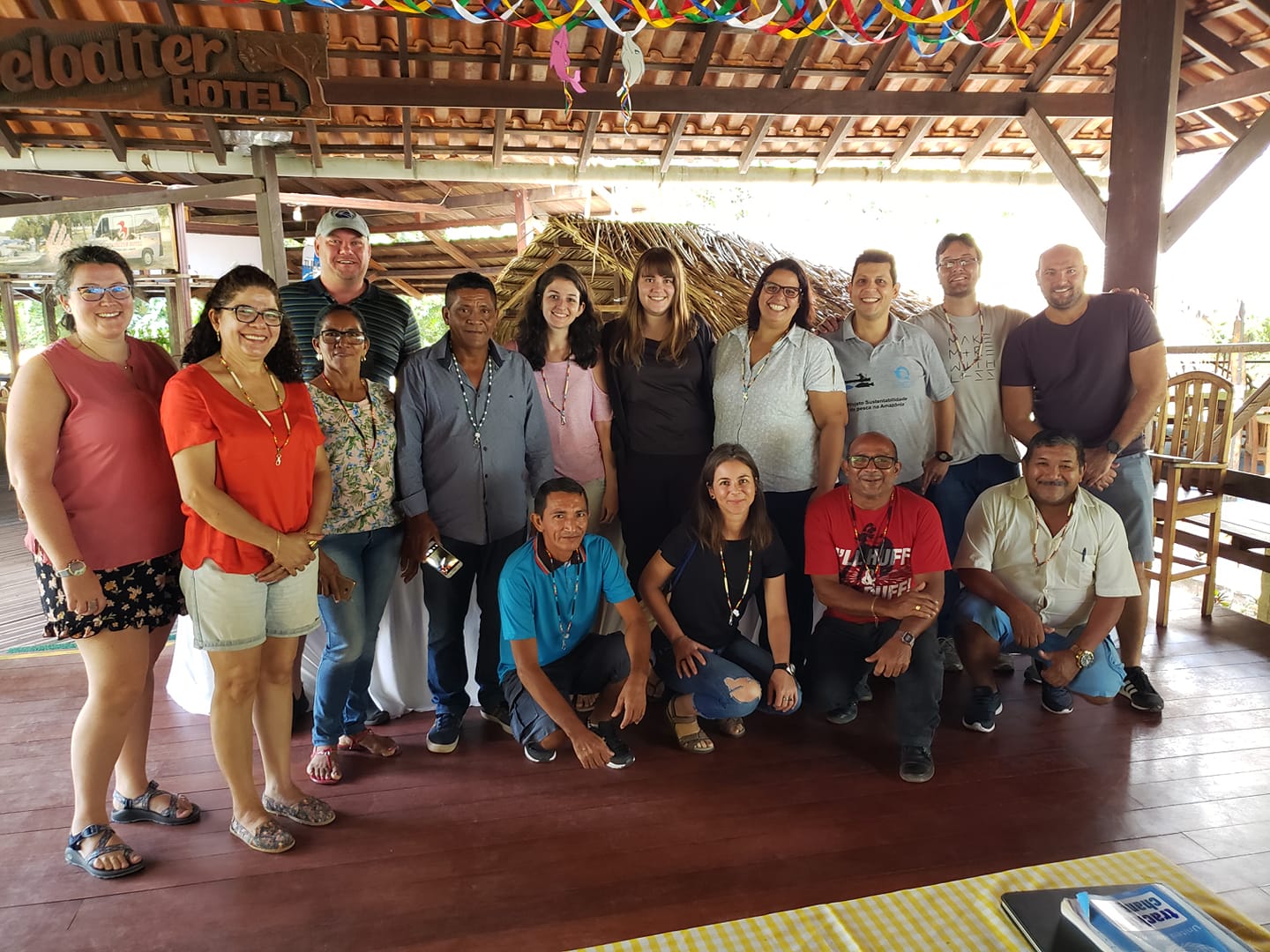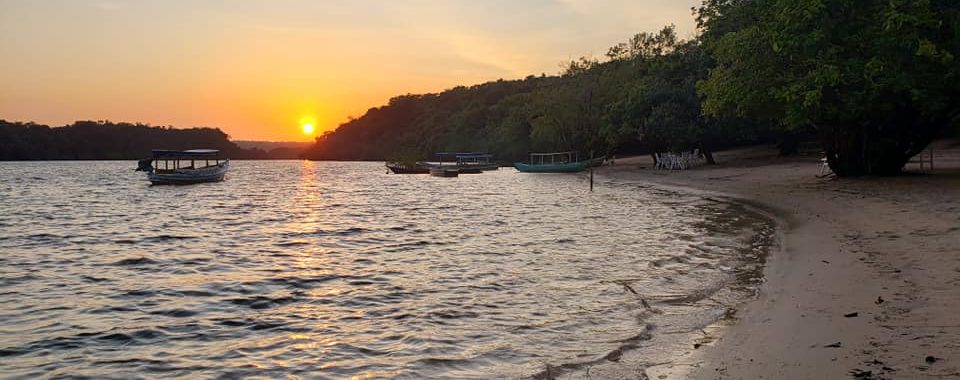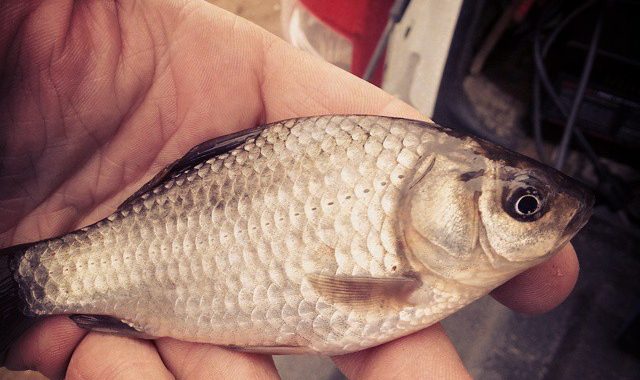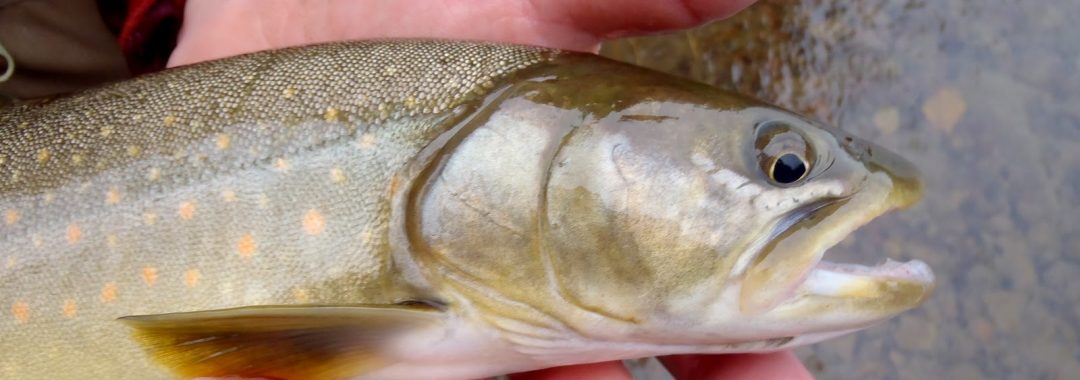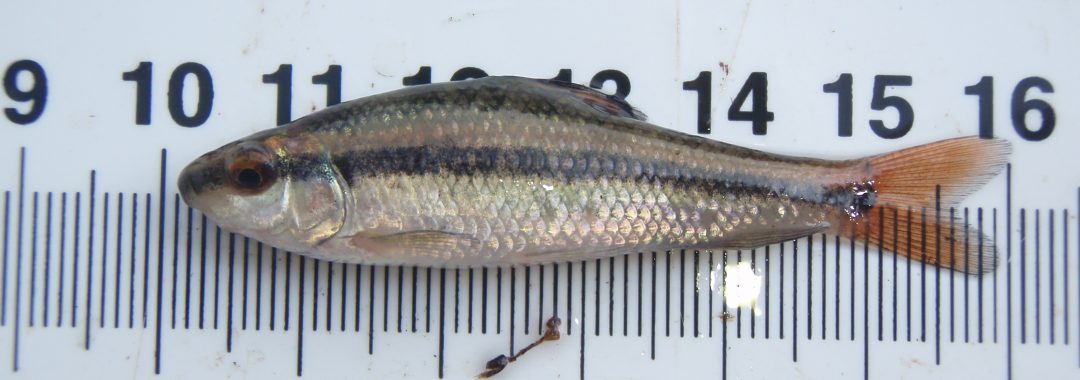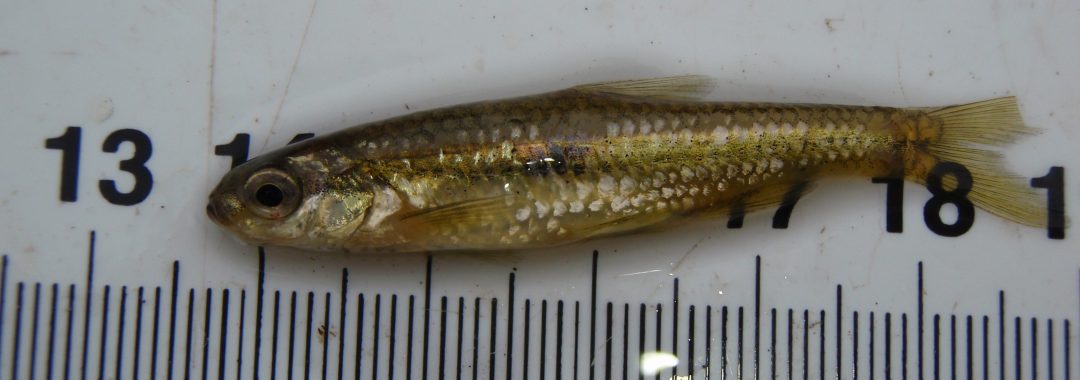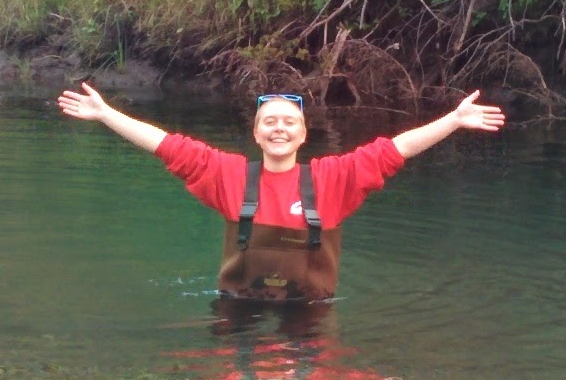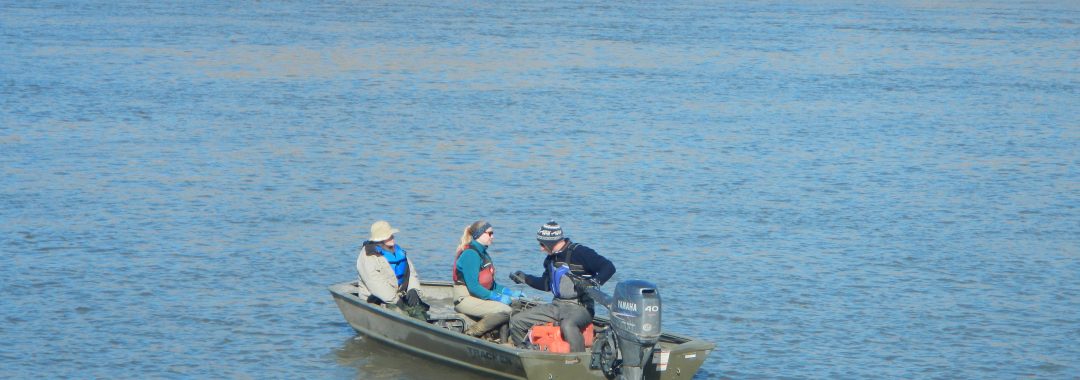Blog Post 1: What is Effective Science (Effective Scientist)?
I have such gratitude to be able to share my thoughts on the Tracking Change project in Brazil. Tracking Change, led by Dr. Brenda Parlee (University of Alberta), bridges science with local and indigenous knowledge to help inform governance structures. As a fisheries scientist, I have always strived to meet the top end of precision when studying aspects of global change, like the decline in freshwater fishes. If I need to analyze the water for contaminants, I send my samples to world-class labs. If I need to sample fish, I think about gear selectivity, habitat structure and potential by-catch. I think about calibration standards, replication of samples, and all other sources of bias that may jeopardize my sample, even if only by a small fraction. I take pride in writing my detailed results to other academics in high impact journals, or describing at conferences around the globe. Taking part in Tracking Change has really changed my mentality about “what is effective science” or perhaps more importantly “how can I be a more effective scientist”. As an applied scientist, I strive for my research to help change the world for the better.
As part of Tracking Change in Brazil I have watched as fisheries scientists, like Renato Silvano and Gustavo Hallwass and their teams, listen and talk to local and indigenous people to understand their issues. I was skeptical about this approach at first. People are fallible in many ways. We can easily over or under estimate things, just someone in a car accident how long it took for emergency response to arrive. This skepticism may be warranted at an academic level, seeing the interviews first hand really changed my perspective into the greater purpose of research. Who better to inform your research than the people who are affected by it? The people in many of the local communities in the Amazon were extremely knowledgeable about the fish species, their habitats, behaviours and trends through time. Further the engagement aspect of interacting with the communities was really positive. Each community welcomed us with open arms and many of the stories were very powerful. This experience of discussing issues with local and indigenous people I found to be very informative. I was especially inspired by the dedication our Brazilian team took in returning to communities to share the results of their previous research. The communities were very grateful for the information. In one case, we were invited into a grade 1-4 classroom and the kids asked us questions. It was one of the highlights of the trip for me.
After these experiences, I see how biased my training and mentality have been. In my academic position, I am rewarded for my high precision, high impact journal publications, that few may read, least of all the people who are impacted by the results. There are many reasons for this, too long to get into, but in short academia does not reward academics for spending my time engaging with local and indigenous people, or sharing their results with them. In the rush to publish, we often lose the importance of our research to the people that are most effected. The truth is, the highly competitive nature of science has left many (including my former self) disengaged with those on the ground. For scientists to be effective they need to not only understand the high precision lab environment, but they need to understand how the results impact local communities. I found the engagement portion of this trip to, dare I say, life changing. I hope that I can live up to the task of being an effective scientist. For me to do so, I need to make more an effort to get out of the office/lab and get back to engaging with people. This isn’t to say that all research/researchers are inadequate. There is a need for people working tirelessly in labs, or conducting important theoretical work. As an applied ecologist, this trip has reemphasized that I need to ensure that my science reflects not only the data I collect, but the people who are effected, and ensure that I am communicated with and between the two. I think that might be a good lesson for academia as well.
Blog Post 2: A surprising bit of apathy
I cannot begin to tell you the excitement that went through me when we finally made it to the Amazon. After 3 days, 4 flights and 8,000 km, we were finally entering the boat and the adventure down the Tapajos River. Flying into Santarém I saw many small fires around the airport. Once we got to Alter de Chão the team and I noticed a relatively large fire burning right across the river from us. I was surprised at how nobody seemed to notice or talk about this fire in our midst. At the hotel, the party boats kept dropping off and picking up people, and visitors were enjoying swimming in the Amazon, ordering food and drink, or enjoying an evening stroll, all while this fire loomed in our midst. This made me think about our current climate crisis and the people who are most effected. To the majority of people who now live in cities, or those tourists at our hotel, environmental destruction is something that is seen on TV and not something, that effects their day to day actions. I am encouraged by the recent climate protests happening around the world, but wonder whether this will solve the problem of public apathy. In many cases, the people most affected by environmental disasters are those who still use the land, including many local and indigenous peoples. Perhaps not surprisingly, the topic of the fires came up frequently when causally speaking with community leaders throughout the Amazon basin. In one of the first communities we stopped in, the wife of the leader of the community described how she viewed the recent fires in Brazil as punishment for people destroying nature. In another community, we heard how last year the fires got very close to their community and they were very worried. It is the same situation with climate change. Northern communities in Canada are reporting drastic change, while the majority of us sit and watch on television. Many view this as system overload. We see too much on at TV these days so nothing can move us into action. The fire in Alter de Chão may be a single observation, but if people can’t be bothered to notice a raging fire in our own community, when will we act to these issues?
Blog Post 3: A thought experiment
I want to present you with a thought experiment I thought of as we were returning from the Tapajos River downstream to our next sampling location. We had a busy day of interviews and engaging with local peoples in the Amazon basin and were late in leaving to return to our scheduled destination. With a 12 hour drive ahead of us, the captain decided it was safe to travel overnight. From my vantage point, I noticed that the crew weren’t using charts or GPS for navigation, they were using their knowledge. I was conflicted over this, so I pose to you my thought experiment (there are no right answers to this).
Imagine you have a choice of two boats travelling back to your scheduled destination. They are travelling back in the dark with no aid of moon light, but they do have a spotlight to identify hazards in close range. Boat 1 is using a GPS to navigate back. Boat 2 is using local knowledge of the river. Both captains and crews are similarly trained, and the boats are identification in every way (e.g. speed, maneuverability). The only difference between the boats is that boat 1’s captain is using GPS, so looking down at the location on the GPS unit, and boat 2 is using his/her knowledge of the river. Which boat would you prefer to be in? Give yourself a few minutes to contemplate.
After my own contemplation, I chose boat 2, which put me at ease for my predicament. It turns out that the crew did have a handheld GPS unit, but they found it very inaccurate and they found they could read the river better using the spotlight and their memory. This thought experiment really highlighted my tradeoff between science/technology (i.e. GPS) versus local and traditional knowledge. If you chose boat 1, I want to you to think about circumstances when science (or your own GPS) failed. If you chose boat 2, I want you to think about when your own memory failed. I do not see boat 1 and 2 as incompatible, again the captain was using both in my case. My conclusion after much thought was if I am okay with boat 2, why is it any different from accepting local and traditional knowledge similar to scientific observation. If I can trust the boat captain based on his local knowledge, why wouldn’t I trust local knowledge of other issues like fisheries or water.
Blog Post 4: The scale and similarity of global problems
I had an interesting conversation with a researcher at our workshop in Brazil. She described the impacts of a dam in the Amazon basin and the decline in fish populations. She lamented that the government and industry did not head their warnings of those impacts. She asked me how projects like that were handled in Canada. I told her that large projects that would be handled under an Environmental Impact Assessment. Companies would have to evaluate the scale of the impacts of their project relative to the sensitivity of the recipient flora and fauna. I told her that this approach works well in theory because there is an attempt to compare before and after differences and ensure that the project has either no negative effects or that they are compensated/offset. She asked me, ‘what if the impacts were very large, would they stop it’. I had to think about my answer. Some projects get caught up in court, but from my understanding I couldn’t think of a project that was denied. My answer was “probably they would allow it, but ask for more compensation/offsetting”. Her reply shocked me, she said “in Brazil, this is the same”. This highlighted to me that the problems we face in Canada, are problem everywhere in the world and we might have more similarities than we might think.
Blog Post 5: How Living on a Boat Should Reflect Life
In the past week or so on living in the confinement of a small boat with as many as 20 people, I found myself contemplating how we could use some of the lessons of boat life in living in the confinement of planet Earth. Here are some things I think translate well…my apologies if they aren’t fully formed.
1) Wake up early, go to bed early. With limited lighting we found ourselves using the sun’s natural clock to wake up and go to bed. I found the routine of it refreshing. As the saying goes: “Early to bed, early to rise makes us happy, wealthy and wise.”
2) Before you have seconds, make sure everyone else had firsts. Lesson: don’t hog all the resources, make sure you share.
3) Share everything. If you came on-board with something someone else needs (e.g. sunscreen), share it, and you will receive reciprocal benefit even if it is the satisfaction of helping someone. This is a great life lesson.
4) Lead by example. If there is a hierarchy on board it would have to be between the captain (top), crew (middle) and passengers (bottom). I find it strangely wonderful that the captain and crew wait to eat until the passengers are done. In our society, it would be the other way around, those on top get things before those on bottom. Great example to live by.
5) Don’t waste anything. Nothing goes to waste. Leftover food from dinner is transformed into a lunch soup. Plastic bags, if used, get saved and reused often. Nothing goes to waste. We re-purpose and reuse everything.
6) Be a good neighbor. In small sleeping quarters it is always best to be aware of other people’s space, comfort … etc. Same is true in the real world.
7) Speak to and try and understand a different point of view. Our crew and passengers speak a mixture of languages. Portuguese is the most popular, then probably Spanish (or Spanish Portuguese), then English, but we have many other languages. It is great to see how people can find common ground and ways to communicate even if they don’t speak the same language. Can you imagine if the world was like that?
8) Don’t wait to be told what to do. If there is something that needs to be done, do it.
9) Leave things the way you found them.
10) Stay loose and keep calm. Okay, I’ve run out of ideas.
